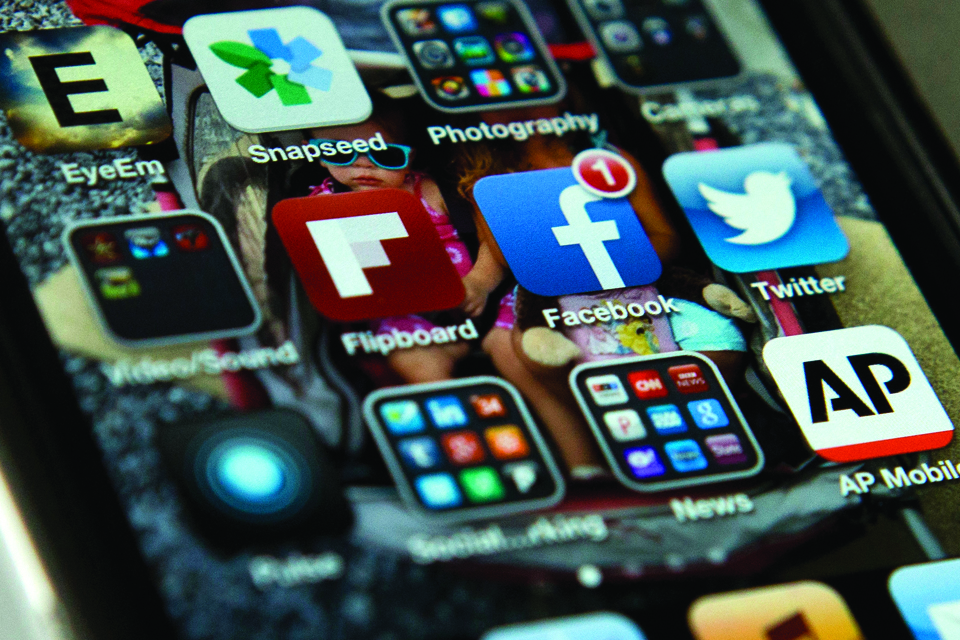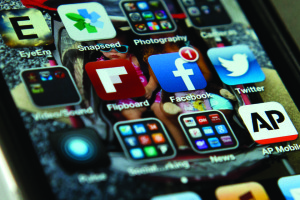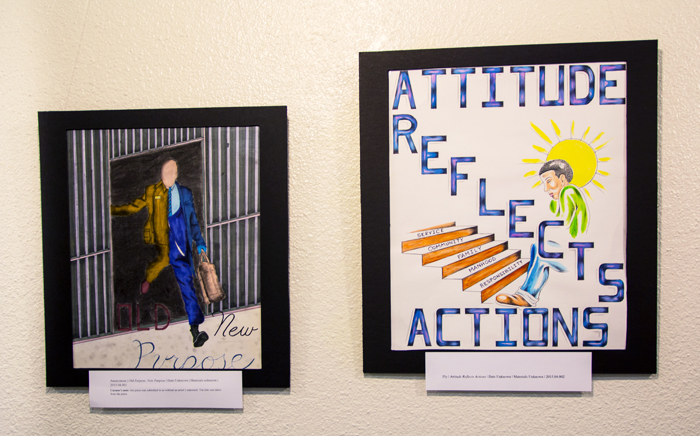
By Natalie Fiorilli | Student Columnist

As college students we are constantly warned about the content we allow on our social media profiles. Typical students continue to soil their profiles with pictures from parties along with considerably offensive posts. In the end, it may turn potential employers away.
Collegiate student-athletes, on the other hand, are now prohibited from using social media at a handful of colleges across the United States. According to an article by ABC News, the Universities of Minnesota, Purdue, Iowa and Louisville banned their men’s basketball teams last year from using Twitter during the season.
The difference between students and student-athletes is that the latter, through competing for their team, are representing a brand and have an effect on that brand’s reputation.
Ryan Gavatorta, assistant director of media relations with Duquesne Athletics, said collegiate athletes should simply be held accountable for any inappropriate social media use.
“I don’t believe that student-athletes should censor their social media content; however they have to be aware that they are fully responsible for any repercussions that could ensue from what they post,” Gavatorta explained.
While some may argue that forcing censorship amongst collegiate athletes is similar to taking away their freedom of speech, these athletes should be held to higher standards. Considering the role they play in maintaining the reputation of their athletic department and school, their behavior online should be monitored.
These student-athletes should feel inclined to represent their team and school through a positive image anyway. Colleges provide a lot for their student-athletes, including full scholarships, an education, a more than supportive coaching staff, as well as vital networking experiences in the world of sports.
“[Collegiate athletes] have more to lose than your average person on social media. More people look up to athletes, and they have a following. Athletes should try to represent their athletic department to the best of their ability,” explained Duquesne sophomore wide receiver Charles Lake.
A recent case showing how easily a student-athlete can tarnish an athletic association’s image was when a Bloomsburg University baseball player’s tweet got him kicked off the team last March.
This student-athlete posted a derogatory tweet about the first girl to pitch a winning Little League World Series game, calling the then 13-year-old girl a “slut.” The tweet resulted in his removal from the team. Bloomsburg’s athletic department made the right decision, disregarding that the student held second place in hits on his team.
Bloomsburg refused to make special exceptions for a talented student-athlete, as all schools should. Too often, colleges pardon student-athletes due to their position on the school’s team, especially in more popular sports like basketball and football.
Texas Tech linebacker Marlon Williams tweeted negatively about his coach in 2009, and only had his social media account removed. Disrespectful content such as this should call for steeper consequences, such as removal from the team.
Censoring collegiate athletes’ social media is an important tactic, especially within a college’s athletic media relations department. Through educating student-athletes on the consequences of negative social media use, the athletic departments can prevent a bad PR situation altogether.
Enforcing stricter policies regarding social media use will prevent these young adults from making poor decisions that could have repercussion years from now.
Just like regular students should keep their social media profiles clean, keeping in mind that potential employers could be viewing them, collegiate athletes should do the same. Life after college happens the same for everyone, and these athletes should be just as concerned about maintaining a positive image of themselves as everyone else.
A view of an iPhone in Washington showing the Twitter app, right, among others. Social media is a platform that can be used inappropriately by collegiate athletes, who should be held accountable for their actions.
A view of an iPhone in Washington showing the Twitter app, right, among others. Social media is a platform that can be used inappropriately by collegiate athletes, who should be held accountable for their actions.



